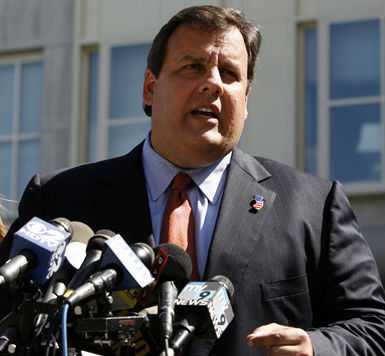New Jersey’s three largest pension funds filed a lawsuit against New Jersey Gov. Chris Christie on Wednesday for slicing the state’s required pension contribution by $900 million in 2014.
The complaint can be read here.
More from New Jersey Watchdog:
Filed Wednesday in Mercer County Superior Court, the lawsuit is the latest conflict in the wake of Christie’s decision last June to balance the state budget by chopping nearly $900 million from a scheduled public-pension contribution of $1.6 billion. The governor also announced plans to cut $1.6 billion from the state’s obligation of $2.25 billion for the current fiscal year.
“The governor is not living up to his own pension reform,” said Wayne Hall, chairman of the Police and Firemen’s Retirement System, told New Jersey Watchdog. “We had to step up and do this; we had to protect our members.”
The other plaintiffs are the Public Employees’ Retirement System and the Teachers’ Pension and Annuity Fund. Combined, the three pension plans represent roughly 290,000 retired public-sector workers and 475,000 active members.
Overall, the state’s retirement systems face a $170-billion shortfall, according to the state’s official numbers. That includes:
– $82.7 billion in unfunded liability for the pension plans of state workers.
– A $20.7 billion shortfall for the pensions of local government employees.
– $53 billion in unfunded health benefits for state retirees.
– $13.8 billion to cover the post-employment benefits local government workers.
The lawsuit asks the court to force the state to make its full payment.


